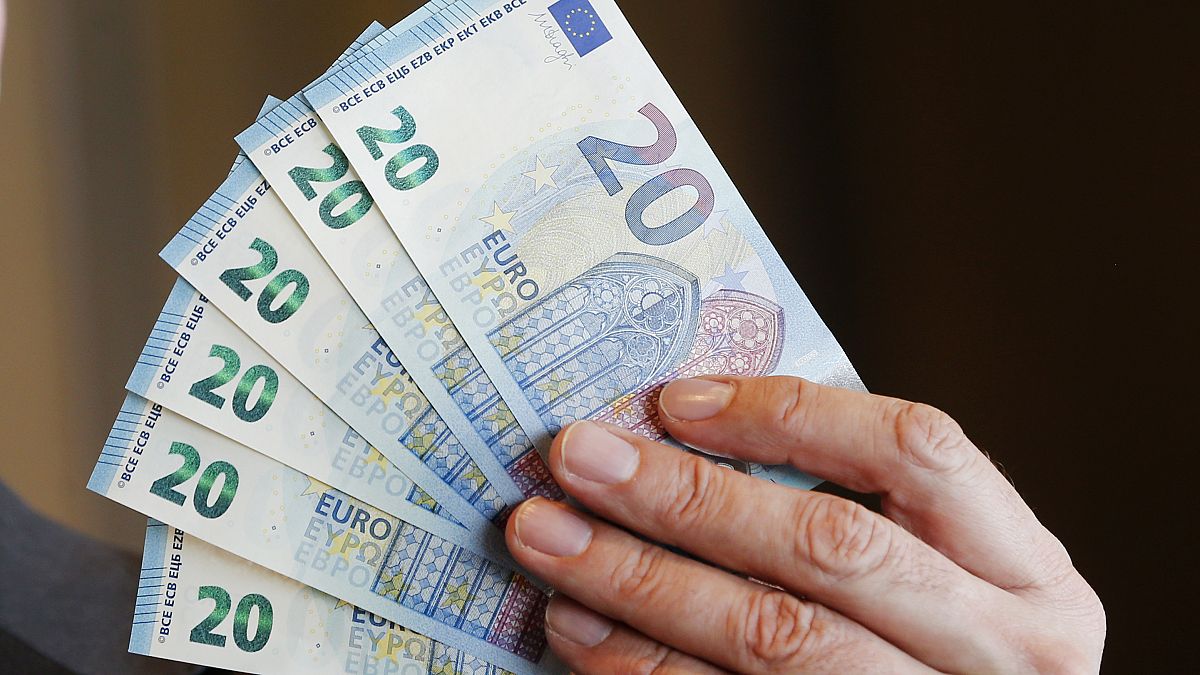Trade, competition, fiscal policy and the EU budget are among the most sought-after prizes on offer in the new EU executive. Euronews examines who is lined up to control key posts, and which embarrassing revelations might trip them up.
Ursula von der Leyen set out portfolios on Tuesday for her second term at the helm of the European Commission – and gave key roles to candidates from Spain, Latvia and Poland.
Economic portfolios such as trade and competition are among the most sought after in Brussels, appearing on several capitals’ wishlists as they seek to negotiate the best possible spot for their candidate.
Many saw their hopes dashed, while others could face controversy for their links to tax havens or jobs on banking boards.
Ireland and Austria both sent a former finance minister to Brussels, in the hope it would win them one of those major prizes – but Michael McGrath was handed the justice brief, and Magnus Brunner migration.
Italy’s Raffaele Fitto, who’d been pushing to secure a senior economic post, has a much slimmer role focused on cohesion and reforms, plus a cluster of seemingly arbitrary duties including cities, the reunification of Cyprus, and the New European Bauhaus, one of von der Leyen’s least comprehensible pet projects.
Overall responsibility for EU prosperity went to executive vice-president Stéphane Séjourné who, like his predecessor from France Thierry Breton, will be responsible for industry and small business.
But in the end, the EU’s most powerful economic portfolio, competition, went to Spain’s Teresa Ribera.
One of the bloc’s larger members – which last held the antitrust role from 2009-2014 under Joaquín Almunia – has been rewarded for sending a female heavy-hitter with a job that includes strong powers to block state aid and mergers.
Notably, Ribera will have to pair her quasi-judicial antitrust duties with overarching responsibility for the EU’s green transition – a move with potentially signficant implications.
Von der Leyen has said she wants to overhaul EU merger policy to account for innovation and resilience – and her letter to Ribera now adds that competition policy needs to be “better geared to our common goals, including decarbonisation and a just transition”.
Ribera may end up taking a key role in EU plans for an industrial strategy, not least if that involves tweaking anti-subsidy rules in the wake of massive Chinese and US support for green tech.
Budget billions
Former Polish diplomat Piotr Serafin will be handed significant powers over the EU’s budget – as the EU prepares to overhaul its overall spending framework, currently worth over €1 trillion over seven years.
That’s a significant win for Warsaw, currently the biggest net beneficiary of EU largesse. In 2023, Commission figures show Poland received €7 billion more in EU funding than it paid in contributions to Brussels.
That’s thanks to EU investment, which is largely targeted at the bloc’s poorer members, as well as farmers.
But, for the next spending period after 2027, there’ll be plenty of demands to use that money in more innovative ways of interest to Poland, including bolstering defence and rebuilding Ukraine.
Trade policy – another area where Brussels holds strong powers – has been handed to Slovakia’s Maroš Šefčovič, the longest-serving member of the Commission, who’s seen as a safe pair of hands.
The job involves tricky bilateral negotiations with trade partners, which he has some experience with, given his continuing role in Brexit talks.
But Šefčovič’s new title also refers to economic security, suggesting that there will be a stronger emphasis on defending against harmful economic practices from the likes of China.
Fiscal hawk
The EU’s economics department – responsible for policing deficits across the bloc’s members – will be handed to Latvian fiscal hawk Valdis Dombrovskis.
As a former prime minister who saw his country through a painful IMF programme, he’s likely to be tough on countries that breach the bloc’s tough rules against indebtedness.
But a couple of more minor allocations are sure to generate controversy during hearings at which MEPs grill candidates for their suitability.
Taxation has been awarded to former Dutch Finance Minister Wopke Hoekstra – though his home country was in 2018 badged by the Commission as a centre of aggressive tax planning, and Brussels has probed allegedly favourable tax treatment the Netherlands gave to multinationals such as Starbucks, Ikea and Nike.
Even more embarrassingly, he’s also personally been implicated in making investments via a tax haven.
The 2021 Paradise Papers leak revealed he’d invested €26,500 in an East African safari company made via the Virgin Islands. He sold the shares a week before he became minister in 2017, and later told parliament that he should have been more careful.
Meanwhile, financial services goes to Portugal’s Maria Luís Albuquerque – and the Brussels leadership doesn’t seem to think there’s any problem hiring someone who’s worked for a number of fund managers, and now sits on the board of Morgan Stanley Europe.
“Experience ... on the side of business ... is very important,” von der Leyen said in response to a question about a potential conflict of interest. “Legislation should reflect the interests of all Europeans and have the views of the different stakeholders; I think it strengthens the position of Maria Albuquerque.”












